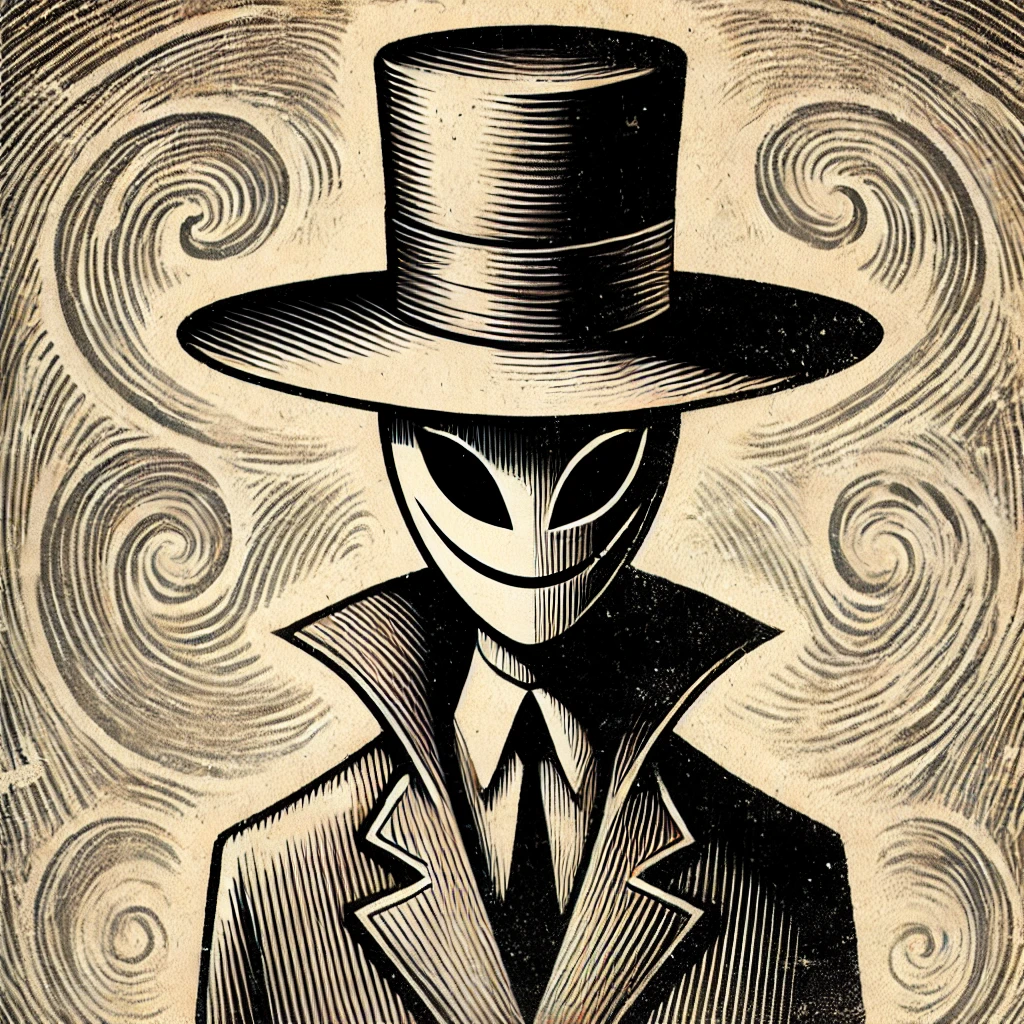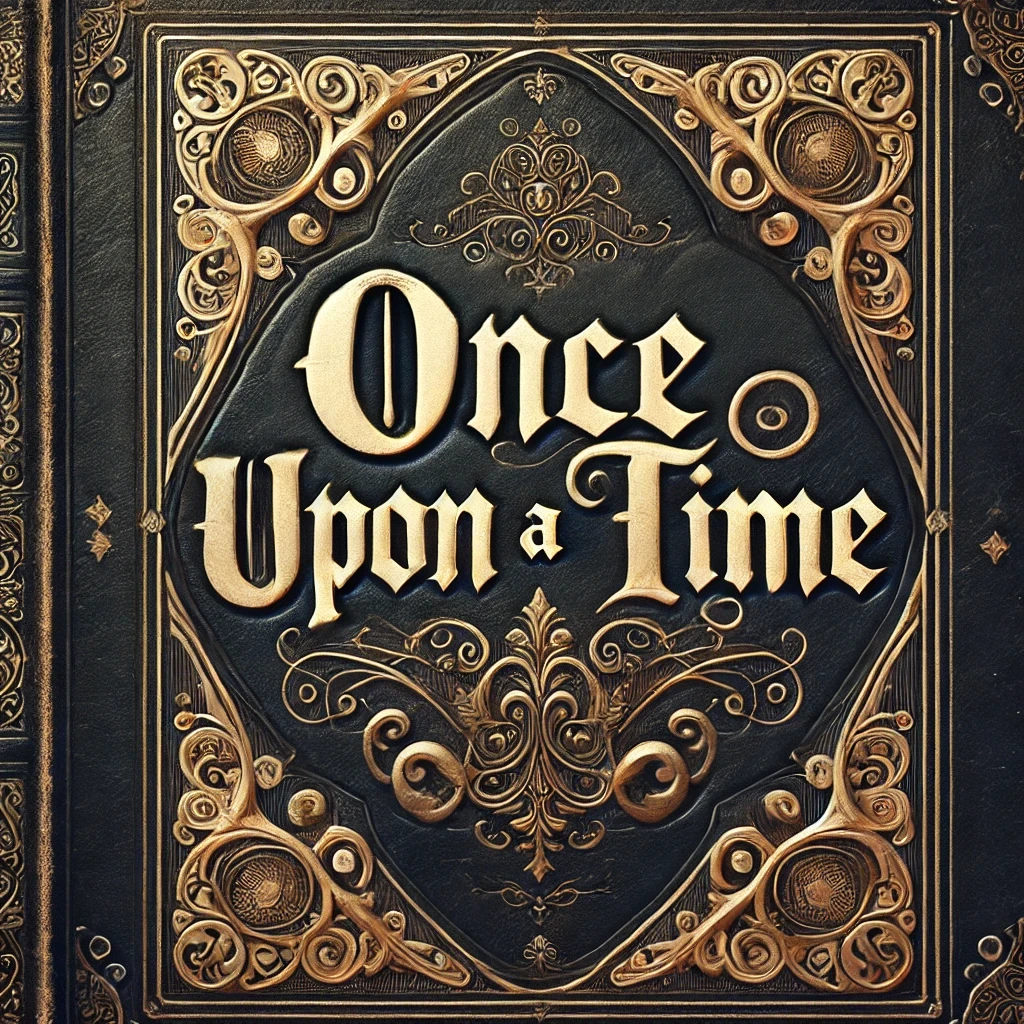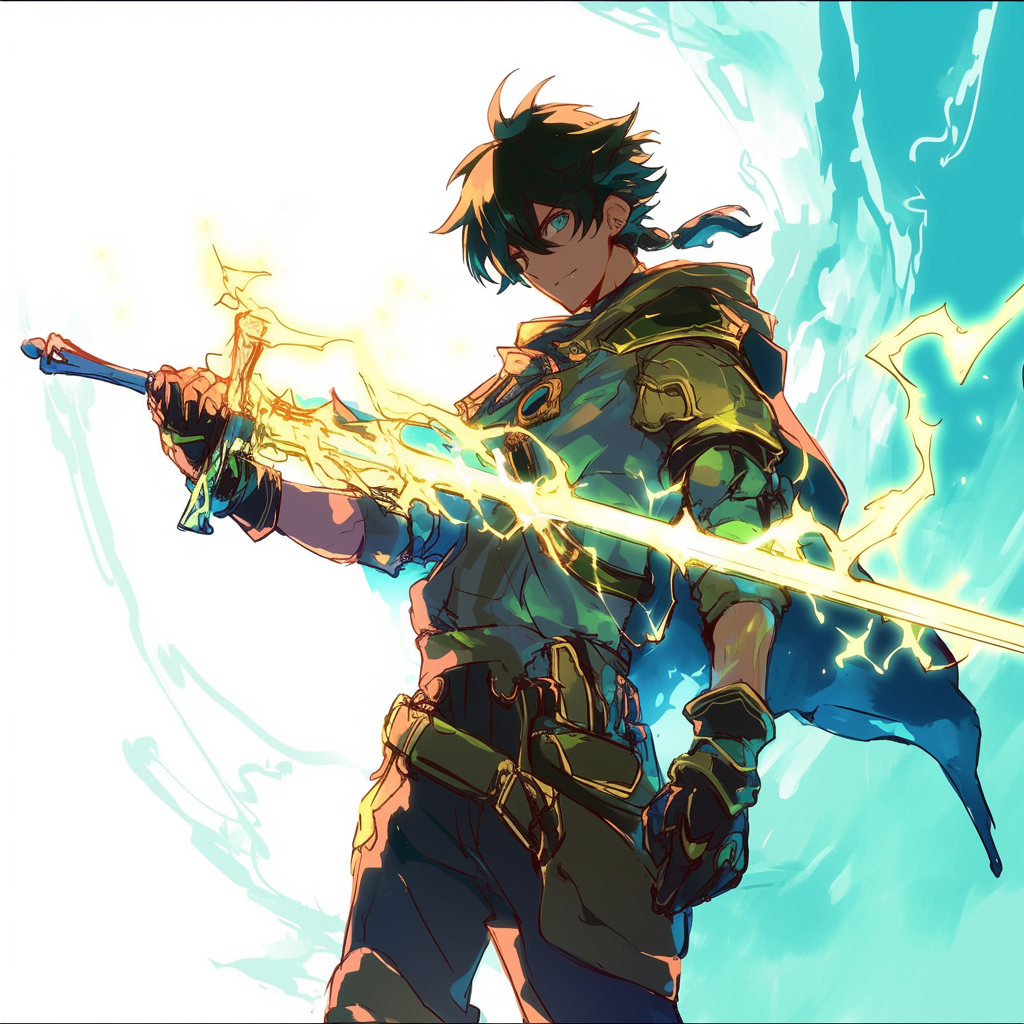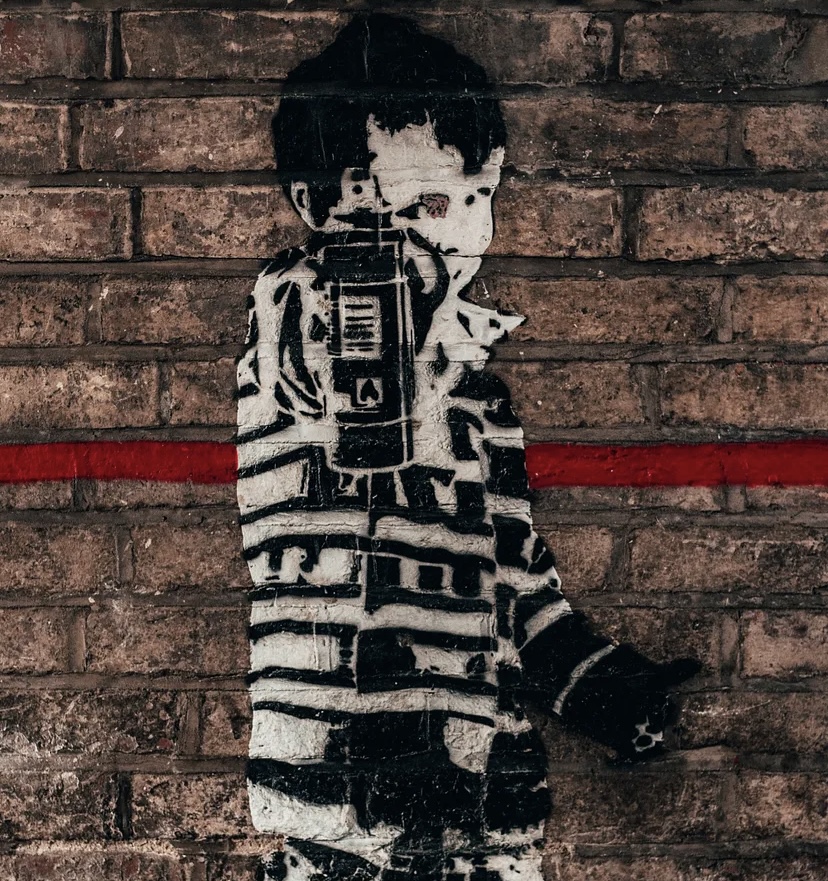The Grey Theory Chapter 6 – Teaser
Phoenix descends the stairs and heads for the side door leading to the garage. Nearing his car, he spots something peculiar on the passenger seat. He grips the door handle, bracing for the usual scent of aged leather, but instead, an acrid stench of eroded oil fills his lungs. His pulse spikes as his gaze falls onto a mid-grade canvas, propped upright. The painting depicts Model C Art Museum, bathed in warm sunlight over a steep hillside. At the top of the stairs, a tall figure in a tuxedo stands as if posing for a photograph.The blue skin, the long hat—this is no man.This is the Omniscient. In the corner of the canvas, a signature stands out: Him. Phoenix clenches the painting, rage building in his chest. His grip tightens as though he might smash it against the dashboard, but he freezes. Destroying the painting feels like provoking the very entity haunting him. If the Omniscient is aware of his anger, it might sever the thread linking Phoenix to the answers he desperately seeks. He refocuses. Find Him. Whether it’s the artist, the seller, or both, someone is toying with him, and he’ll kill to know. *** Highway 55 carries Phoenix to Thomas County, a town buried beneath an overpass. Smooth asphalt gives way to cracked cement, and the buildings lining the strip seem frozen in time, their facades dusty and worn. An eerie familiarity settles over him as he spots a barbershop with a candy-cane pole embedded in brickwork—just like the one from his dream, a precursor to Model C in the imagined Hapesville. Further down, near a sunken curb, he finds the store: Utopia. Its purple sign hangs crooked, letters fading like a forgotten memory. He parks, debating his approach. A surgical mask and Ray-Bans conceal his identity—harmless enough for gathering information. Beneath his belt, a pistol rests snugly, its weight grounding him. Inside, the shop defies its worn exterior. Polished granite floors glint under the flickering light of an old bulb. Golden-framed paintings line the walls, their style reminiscent of Da Vinci but steeped in dark religious undertones. At the center, a desk sits like an altar, flanked by three easels displaying Him’s works. The middle painting seizes Phoenix’s attention: the Omniscient, staring back as if alive. A voice breaks the silence. “Can I help you?” Phoenix turns. The seller—a short, husky man with a receding hairline—wears a tropical Hawaiian shirt that clashes with the shop’s solemn decor. With his speech still absent, Phoenix pulls out a sticky note and writes: Why did you break into my house? The seller squints. “What? I didn’t—” Phoenix slams his pistol onto the counter. The man’s face drains of color. “Please! I don’t know what you’re talking about!” Another note lands in front of him: Who broke in? The seller stammers, hands trembling. “I swear, I don’t know! Please, man!” Phoenix shoves him toward the Omniscient’s painting, jabbing a finger at it before slamming another note down: Who is the artist? Where does he live? The man collapses against the counter, sobbing. “His name is Him! I don’t know his real name! He drops shipments from 303 Cherry Brick Road!” Phoenix stiffens. That’s the vacant property across the street from my house. The seller pleads. “I swear, that’s all I know!” Releasing him, Phoenix storms out, his mind racing. He heads back to Pine Hill, to the house on Cherry Brick that has haunted his waking and dreaming life. *** 303 Cherry Brick Road looms in quiet defiance, its brick façade weathered but untouched by time, spanning roughly 2,000 square feet. Darkened windows reflect the last light of dusk. Overgrown shrubs claw at the air like skeletal hands, framing the pathway to the door. The house pulls at him, alive in its silence. He should walk away. He can’t. Pulling into the cracked driveway, his headlights skim the exterior. For a moment, movement flickers behind an upstairs window—gone as quickly as it appeared. He shakes it off. Just a glare. Then, a faint glow from a first-floor lamp cuts through the dimness. Phoenix moves to the porch. The door stands solid, its chipped paint revealing raw wood beneath, as if the house is shedding its skin. His hand hovers over the doorbell. A chime echoes back. He wants to leave. But something holds him there. The door rattles. It creaks open just enough to reveal a sliver of darkness. As if nudged by an unseen hand.








